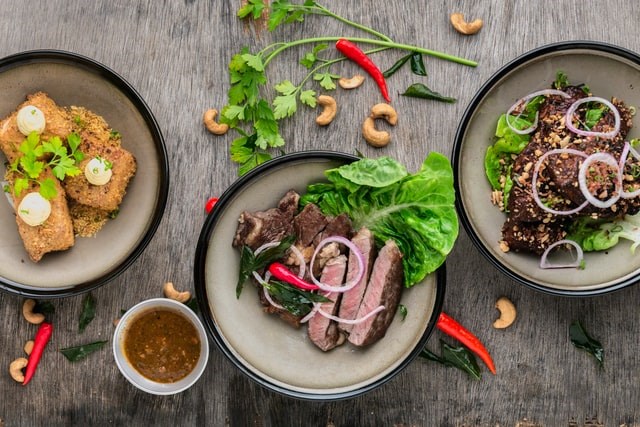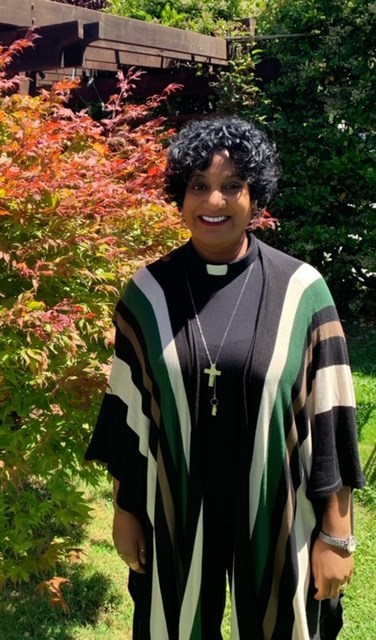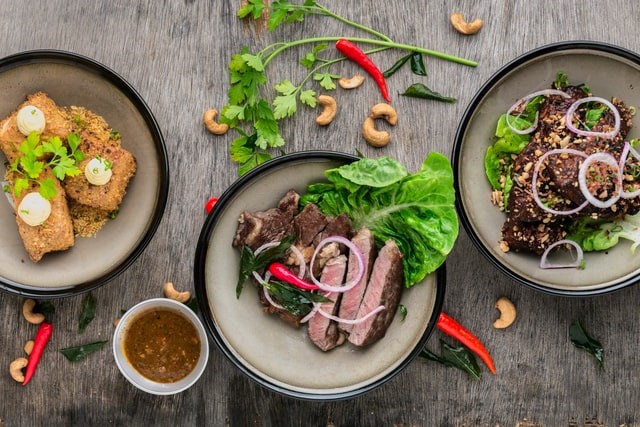 I was recently gifted with a mint condition copy of ŌĆ£Canadian Lutheran Ladies, Family Favourites CookbookŌĆØ, an artifact of the ancient church dating back to 1984. In 1984╠²I was a Prince Rupert tenth grader, completely unaware of Christianity, of Lutheranism and of religion in general. I was, however, keenly aware of my identity as an ethnic minority. If this book ever graced the cookbook shelf of my immigrant Trinidadian parents, it would have been a Divine accident.╠²
I was recently gifted with a mint condition copy of ŌĆ£Canadian Lutheran Ladies, Family Favourites CookbookŌĆØ, an artifact of the ancient church dating back to 1984. In 1984╠²I was a Prince Rupert tenth grader, completely unaware of Christianity, of Lutheranism and of religion in general. I was, however, keenly aware of my identity as an ethnic minority. If this book ever graced the cookbook shelf of my immigrant Trinidadian parents, it would have been a Divine accident.╠²
I started flipping through the pages, excited to step back in time to a church I never knew, but to those who grew up in the church, who raised their families in the church and who formed the culture of the Evangelical Lutheran church in sa╣·╝╩┤½├Į, these recipes were the food that fuelled a heyday. Famous chef and travel writer Anthony Bourdain once said, ŌĆ£if you really want to get to know a people, eat their foodŌĆØ.╠²
Browsing through the ŌĆ£ethnicŌĆØ section, I was skeptically certain I wasnŌĆÖt going to find any Roti or Doubles. Despite decades of Multiculturalism in sa╣·╝╩┤½├Į, the Evangelical Lutheran Church in sa╣·╝╩┤½├Į remains exceedingly white in membership. Curiously, what I did find was Bannock, Tandoori Chicken, Krumkake, Paska, Welch Cakes and Prince Edward Island Clam Chowder. Ok, if these recipes were considered ŌĆ£ethnicŌĆØ in 1984, what was considered traditional? Finnish Coffee Bread, Canadian Cheddar Cheese Soup, Lobster Chowder, African Chow Mein, Short Rib Curry and of course Krumkake. If I expected greater distinction between what was and what wasnŌĆÖt considered traditional, this Lutheran cookbook didnŌĆÖt reflect it.
If you eat the food of Lutherans, youŌĆÖd find out that we are everyday Canadians. If you eat the food of Canadians, itŌĆÖs obvious that our food reflects Settler Multiculturalism and Indigenous bounty that makes sa╣·╝╩┤½├Į the complicated and beautifully diverse country that it is.╠²
So, if the late Mr. Bourdain is correct, and weŌĆÖve become a country that celebrates the food of many cultures to the point where weŌĆÖve fused a global menu into our national identity, then who are we today and why are we still reconciling systemic racism in our communities? Why is Anti-Muslim and Anti-Asian hate on the rise? Why have we arrogantly dismissed what Indigenous knowledge keepers teach us about food, land, water and Creator? What does it actually mean to know people by sharing in their food and what does our multi-ethnic landscape teach us about ourselves?
I serve as pastor at Spirit of Life Lutheran Church in Vancouver, where we provide an ongoing Community Lunch with the aim of extending hospitality in a simple meal, getting to know our neighbours and getting to know ourselves better in the process. ItŌĆÖs a reflection of the Christian meal of wine and bread at JesusŌĆÖ table. A meal where nobody is excluded, where we believe God meets us in abundant grace and we encounter communion with God and with others in deep humility and gratitude.
Perhaps deep humility and gratitude are the missing ingredients in our recipe for true Diversity, in the church and beyond. Knowing that food isnŌĆÖt just festival and fun but is intimate, it requires courage, an open mind and it always brings us closer into relationship with those we meet at the table. Food is for the hungry - hungry for belonging and to be seen and known in equity. To know our neighbours as ourselves means that we care about how they are treated and that they are nourished and thriving. We have all the ingredients we need for this recipe, right here in sa╣·╝╩┤½├Į. What will we make of it?╠²
 The Rev. Aneeta Devi Saroop (she/her) is the pastor at Spirit of Life Lutheran Church in Vancouver, BC. She is an Ordained Minister of Word and Sacrament in the Evangelical Lutheran Church in sa╣·╝╩┤½├Į.
The Rev. Aneeta Devi Saroop (she/her) is the pastor at Spirit of Life Lutheran Church in Vancouver, BC. She is an Ordained Minister of Word and Sacrament in the Evangelical Lutheran Church in sa╣·╝╩┤½├Į.
You can read more articles on our interfaith blog, Spiritually Speaking, HERE
* This article was published in the print edition of the sa╣·╝╩┤½├Į on Saturday, July 17th 2021
Photo by╠²╠²┤Ū▓į╠²
╠²
╠²
╠²
╠²
╠²



